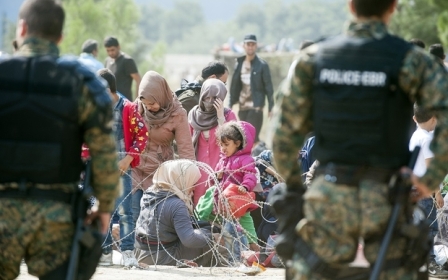Israel outraged as Poland passes controversial Holocaust legislation

Poland's senate on Thursday passed a controversial Holocaust bill, which was designed to defend the country's image abroad but has instead sparked a diplomatic row with Israel.
The bill, which sets fines or a maximum three-year jail term for anyone who refers to Nazi German death camps as Polish or accuses Poland of complicity in the Third Reich's crimes, was approved by 57 votes to 23 in the upper house of parliament, with two abstentions.
Israel had earlier called for the bill to be dropped, seeing one of its provisions as an attempt to deny Polish involvement in Nazi Germany's extermination of Jews.
"We have no tolerance for the distortion of the truth and rewriting history or denying the Holocaust," Israeli Prime Minister Benjamin Netanyahu said on Sunday.
The lower house of parliament, which like the senate is controlled by the governing right-wing Law and Justice (PiS) party, had passed the bill on Friday, triggering Israel’s protest.
Knesset lawmakers penned a proposed bill of their own on Wednesday amending Israel's law regarding Holocaust denial, so that diminishing or denying the role of those who aided the Nazis in crimes against Jews would be punishable with jail.
The Israeli foreign ministry on Sunday summoned Poland's charge d'affaires to object to the bill.
Poland's Deputy Justice Minister Patryk Jaki, who authored the bill, last week said it was not directed against Israel.
"Important Israeli politicians and media are attacking us for the bill... On top of that they claim that Poles are 'co-responsible' for the Holocaust," he said, adding that "this is proof how necessary this bill is".
Before the vote on the Polish bill, US State Department spokeswoman Heather Nauert expressed "concern" that "if enacted this draft legislation could undermine free speech and academic discourse".
"We are also concerned about the repercussions this draft legislation... could have on Poland's strategic interests and relationships – including with the United States and Israel," she added.
To take effect, the legislation still needs to be signed by Polish President Andrzej Duda, who has 21 days to do so.
In theory he could veto the bill, but on Monday he said: "We absolutely can't back down, we have the right to defend the historical truth."
He added that he was "flabbergasted" by Israel's "violent and very unfavourable reaction".
Poland was attacked and occupied by Nazi Germany in the Second World War, losing six million of its citizens, including three million Jews.
Helping Jews, even offering them a glass of water, was punishable by death in occupied Poland.
More than 6,700 Poles - outnumbering any other nationality - have been honoured as "Righteous Among the Nations", a title given to non-Jews who stood up to the Nazis, by Jerusalem's Holocaust memorial Yad Vashem.
In November, about 60,000 people marched in a far-right demonstration in Warsaw.
Middle East Eye propose une couverture et une analyse indépendantes et incomparables du Moyen-Orient, de l’Afrique du Nord et d’autres régions du monde. Pour en savoir plus sur la reprise de ce contenu et les frais qui s’appliquent, veuillez remplir ce formulaire [en anglais]. Pour en savoir plus sur MEE, cliquez ici [en anglais].




